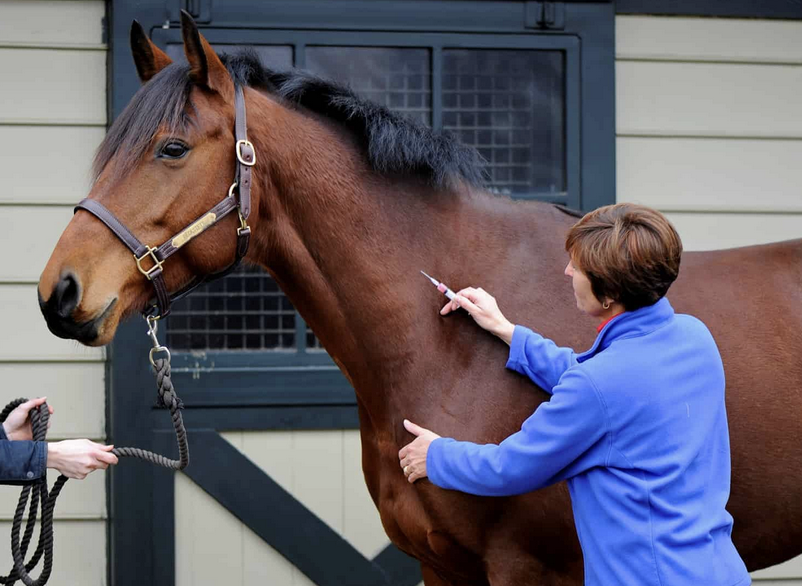Has your horse been vaccinated this Spring? Everyone has their own system and situation, but we all should meet the "must dos" on our vaccine list, preferably soon, before insect season. First and foremost, make sure you consult your veterinarian. Variations in a vaccination plan may be due to your horses age and exposure to other horses and travel plans.
According to the American Association of Equine Practitioners, the following *core disease vaccinations are those we ALL should make sure our horses are protected from. These recommendations are if the horse has been previously vaccinated, and is greater than one year of age.- Tetanus - Annual vaccination with tetanus toxoid, with a booster if a penetrating (puncture) injury occurs
- Rabies - Annual vaccination
- Encephalomyelitis (Eastern and Western) - EEE and WEE should be vaccinated for each Spring and Fall. With the mild winters we generally have (especially this year) this is critical to protect from the virus carried often by mosquitos
- West Nile Virus - Similar to Encephalomyelitis, West Nile vaccination is also needed each Spring and Fall
- Equine Herpesvirus (EHV)
- Equine Influenza
- Equine Viral Areteritis (EVA)
- Potomac Horse Fever
- Strangles
- Anthrax
- Botulism
- Leptospirosis
- Rotavirus
Information source: American Association of Equine Practitioners Guidelines 2020. Visit aaep.org/guidelines/vaccination-guidelines for more details and updates.
